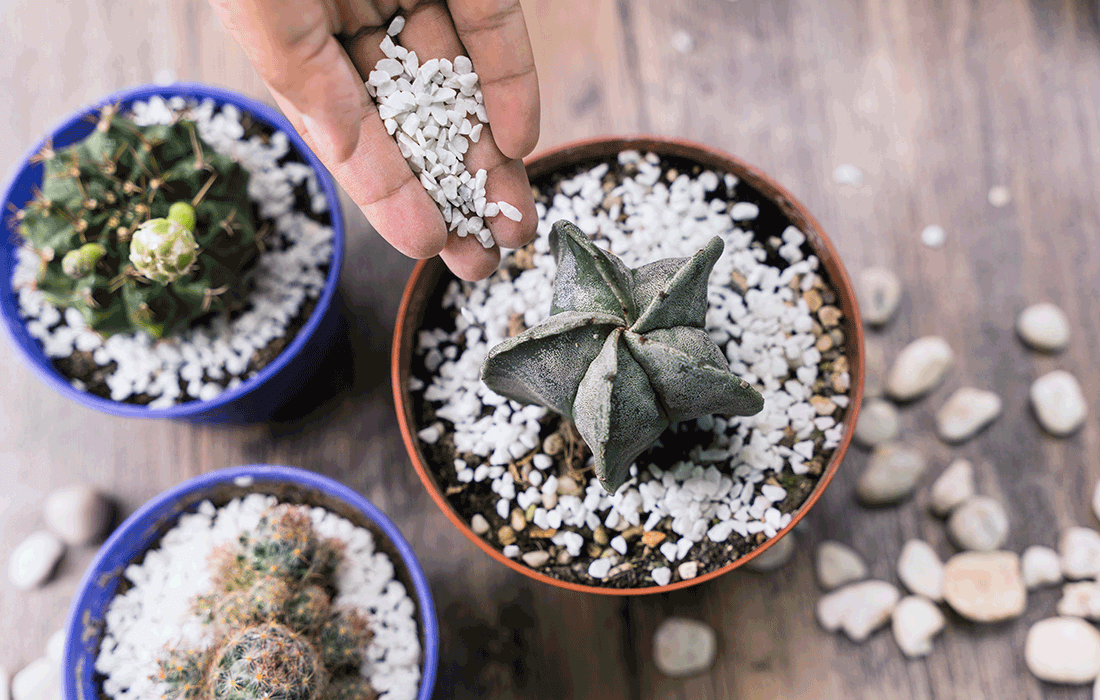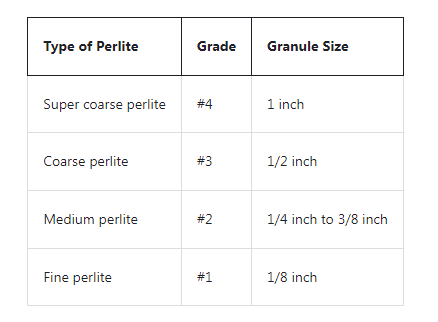What is perlite good for?

What is perlite good for? Uses, types, and comparing
What is perlite?
Perlite is a lightweight and porous volcanic glass that is expanded by heating. It is widely used in various applications due to its unique properties. In gardening and horticulture, perlite is valued for its ability to improve soil drainage and aeration. This is making it an excellent choice for plant growth.
Perlite Uses and properties
Aeration: Perlite’s expanded nature makes it extremely porous, allowing for better oxygen circulation in the root system.
Drainage: It improves water drainage in soil, preventing waterlogging and root rot.
Water Retention: While perlite does absorb some water, its primary function is to enhance drainage rather than water retention.
Seed Starting and Propagation: Perlite is useful for starting seeds and rooting cuttings due to its lightweight and well-draining properties.
Hydroponics: It can be used as a standalone growing medium in hydroponic systems. It’s providing support for plant roots while allowing for nutrient absorption.
Soil Amendment: Perlite can be mixed with other ingredients to create soilless potting mixes. Or added to garden soil to improve its structure and aeration.
Construction and Manufacturing: Perlite is also used in lightweight plasters, concrete, insulation, and ceiling tiles. Thanks to its low density and heat resistance.
Filtration: Infiltration, perlite is increasingly being used to filter solids out of liquids in various applications. Such as filtering stormwater runoff from roads and highways.
Cosmetics: Perlite is used in cosmetics as an absorbent and mechanical exfolian.
Perlite Types

Perlite is available in various grades or granule sizes, which correspond to different coarseness levels. The four main types of perlite are.
Super Coarse Perlite. This type of perlite has the largest particle size, with a granule size of 1 inch (#4 grade). It is primarily used to amend raised beds, garden beds, or dense soils with high water-holding capacity. Super coarse perlite is not suitable for potted plants or general garden use due to its size.
Coarse Perlite. Coarse perlite has a granule size of 1/2 inch (#3 grade). It is also used to amend raised beds, garden beds, or dense soils with high water-holding capacity. But it is more versatile than super coarse perlite. Coarse perlite can be used for potted plants, window boxes, and general garden use.
Medium Perlite. This grade of perlite has a granule size ranging from 1/4 inch to 3/8 inch (#2 grade). It is commonly found in commercial potting soil and is suitable for potted plants, window boxes, and general garden use.
Fine Perlite. Fine perlite has the smallest particle size, with pieces between 1/8 inch and 1/128 inch (#1 grade). It is often used for rooting cuttings and starting seeds due to its high water-holding capacity. Fine perlite is not suitable for amending soil or improving drainage. As it can be affected by airflow, tends to float in excess water, and does not provide adequate aeration.
Comparison of agricultural gypsum and horticultural perlite
Here is a comparison between agricultural gypsum and perlite in terms of their properties and uses.
Agricultural Gypsum.
Composition: Agricultural gypsum is a mineral fertilizer that contains essential nutrients for plants, such as calcium, sulfur, and phosphorus.
Soil Improvement: It helps in rebuilding and reclaiming soil for agriculture, improving soil structure, aeration, and drainage.
pH Balance: Agricultural gypsum helps in balancing soil pH, especially in acidic soils.
Nutrient Availability: It improves the availability and uptake of nutrients by plants from the soil.
Time and Method of Application: Agricultural gypsum is typically applied to the soil before planting or as a top dressing. And its effects are long-lasting.
Perlite.
Composition: Perlite is a volcanic glass that is expanded by heating, resulting in a lightweight and porous material.
Aeration: Perlite provides excellent aeration to the soil, allowing for better root development and water drainage.
Moisture Retention: Perlite has low water-holding capacity, which can be beneficial for plants that prefer well-draining soil.
pH Balance: Perlite is pH-neutral, which means it does not significantly affect the soil’s acidity or alkalinity.
Time and Method of Application: Perlite is often mixed with potting soil. Or used as a top dressing in containers and raised beds.
While both agricultural gypsum and perlite have benefits for plant growth, they serve different purposes in soil improvement. Agricultural gypsum focuses on providing essential nutrients and improving soil fertility, while perlite enhances soil aeration and drainage. The choice between the two depends on the specific needs of your plants and soil conditions.
Horticultural perlite for sale
The company “Ever Bright,” leading provider of agricultural gypsum in region, has expanded its product offerings to include horticultural perlite. This particular perlite type is known for its exceptional purity and quality, making it the best option available in market. Horticultural perlite is a specially processed and graded form of perlite. This is specifically designed for use in gardening and horticulture applications.
